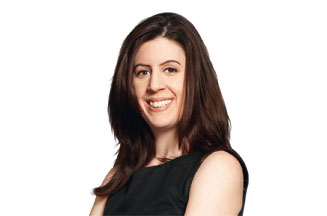Advertisers should be rooting for Tony Ball to take over the helm at ITV. The energetic former BSkyB chief is likely to have a more far-reaching strategy for the broadcaster than many others on the shortlist for the post.
This particularly applies to those who lack media experience and would need at least six months to bone up on the industry before delving in. If Ball is appointed, advertisers can be assured that the man in charge already understands the market. He may be a pay-TV man, but he still has an understanding.
Ball is also the investors' favoured candidate for the top job, having won support early on from leading shareholders such as Fidelity and Legal & General Investment Management. However, some members of the ITV board are believed to be less keen.
Michael Grade wants to stay at the company in a non-executive capacity, so appointing the shareholders' preferred candidate could create obvious tensions.
The board thought it had got its way when it found HMV chief Simon Fox, but he walked away and the ball was left in the investors' court.
Negotiations over pay have taken time. No doubt, Ball expects a Grade-style remuneration package, and he is used to earning sizeable fees since leaving BSkyB in 2003 with a £10m non-compete deal.
Nonetheless, many at ITV's Gray's Inn Road headquarters still believe it is only a matter of time before Ball walks through the door.
I hear a £500m rights issue would be his first priority - and we can safely assume that he has shareholders' support for this strategy. It would give ITV greater stability and flexibility as it crawls out of the downturn.
However, more radical steps are needed to help the broadcaster recover from the severe advertising downturn. Selling off at least a stake in production would make sense. BSkyB might be one keen buyer, so maybe Ball can get in touch with a few old friends.
A pay-TV and digital strategy would be central to Ball's grand plan, as the need for new revenue streams increases. With ongoing work on Project Canvas, and 3D HD waiting in the wings, now is the time to make the most of these opportunities. Advertisers stand to benefit from the opportunity to sponsor ITV's video-on-demand offering and its stronger focus on digital delivery.
However, Ball will have to be careful not to deviate from ITV's core role as an ad-funded broadcaster. The TV advertising market may not return to where it once was, but it will always be the broadcaster's main revenue driver.
The next ITV chief will also reap the benefits of the relaxation of the Contract Rights Renewal remedy. The mechanism was imposed to protect advertisers' interests at the time of the Carlton-Granada merger, and Grade fought hard to abolish it.
This is all likely to lead to sales-house tie-ups elsewhere, and we know Sky and Channel 4 are in advanced talks about merging their operations.
Five chief executive Dawn Airey has also suggested a possible merger of the smaller UK sales houses - her own, IDS, which represents the Virgin Media TV channels, Viacom and Turner.
A former Sky executive herself, Airey is a keen supporter of Ball and a tie-up between Five and ITV could create a strong proposition for advertisers, if competition authorities allowed it.
Five's owner, RTL, has discussed the feasibility of a full-blown merger with its advisors, so there is a willingness to team up with ITV if the latter's new chief executive chooses this route.
If Ball wins, there will be all to play for at the commercial broadcaster.
Amanda Andrews is media editor at The Daily Telegraph, Sunday Telegraph and telegraph.co.uk
30 seconds on Tony Ball
- Ball was born and educated in London. He began his career as a broadcasting engineer at Thames Television.
- He was a founding director of Champion TV, which launched the UK's first dedicated sports channel, The Sports Channel, broadcast on BSB.
- In 1993, Ball joined BSkyB, where he helped to build the success of Sky Sports, before moving to the US to take over the Fox/Liberty Networks.
- He was chief executive of BSkyB between 1999 and 2003 and is credited with doubling its number of subscribers to more than 7m and returning the company to profit.
- As Ball took over shortly after the launch of Sky Digital, he also focused on driving take-up of this service.
- His successor was Rupert Murdoch's son, James.
- Since leaving BSkyB, Ball has joined the board of several organisations, including Germany's biggest cable operator, Kabel Deutschland, whose advisory board he chairs; the Olympic Delivery Authority for the London 2012 Games; and the Media Trust. In June he became a non-executive director of BT.


